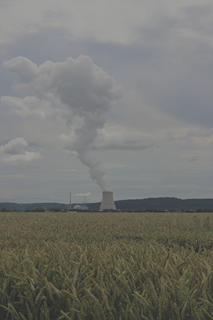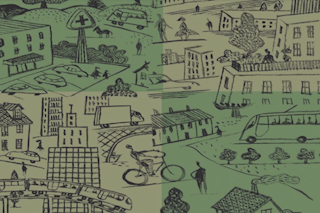Its time to stop blaming 2/3 of humans who are Asian for their consciously open minds and love of education. Do Atlantic people's old populations still trust and celebrate capability of generating healthy innovative brains? What's clear to anyove visting Washington DC or Brussels is a dismal mismatch exists between the gamechanging future opportunities listed below and how freedom of next generation learning has got muddled by how old male-dominated generations waste money on adevrtising and bossing. Consider the clarity of Stanford's Drew Endy's Strange Competition 1 2:
Do Atlantic people's old populations still trust and celebrate capability of generating healthy innovative brains? What's clear to anyove visting Washington DC or Brussels is a dismal mismatch exists between the gamechanging future opportunities listed below and how freedom of next generation learning has got muddled by how old male-dominated generations waste money on adevrtising and bossing. Consider the clarity of Stanford's Drew Endy's Strange Competition 1 2:
Up to “60% of the physical inputs to the global economy”7 could be made via biotechnology by
mid-century, generating ~$30 trillion annually in mostly-new economic activity.
8 Emerging
product categories include consumer biologics (e.g., bioluminescent petunias,9 purple tomatoes,10
and hangover probiotics11
), military hard power (e.g., brewing energetics12
), mycological
manufacturing (e.g., mushroom ‘leather’
13
), and biotechnology for technology (e.g., DNA for
archival data storage14
). Accessing future product categories will depend on unlocking biology as
a general purpose technology15
(e.g., growing computers16
), deploying pervasive and embedded
biotechnologies within, on, and around us (e.g. smart blood,17 skin vaccines,18 and surveillance
mucus19
), and life-beyond lineage (e.g., biosecurity at birth,20 species de-extinction21
). | . notes on drew endy testimony on bio tech 2025 strange competition Natural living systems operate and
manufacture materials with atomic precision on a planetary scale, powered by ~130 terawatts of
energy self-harvested via photosynthesis Biotechnology enables people to change biology. Domestication and breeding of plants and
animals for food, service, and companionship began millennia ago. Gene editing, from
recombinant DNA to CRISPR, is used to make medicines and foods, and is itself half-a-century
old. Synthetic biology is working to routinize composition of bioengineered systems of
ever-greater complexity https://colossal.com/ 20 https://dspace.mit.edu/handle/1721.1/34914
19 https://2020.igem.org/Team:Stanford
18 https://med.stanford.edu/news/all-news/2024/12/skin-bacteria-vaccine.html
17 https://www.darpa.mil/news/2024/rbc-factory
16 https://www.src.org/program/grc/semisynbio/semisynbio-consortium-roadmap/
15 https://www.scsp.ai/2023/04/scsps-platform-panel-releases-national-action-plan-for-u-s-leadership-in-biotechnology/
14 https://dnastoragealliance.org/ 13 https://www.mycoworks.com/
12 https://serdp-estcp.mil/focusareas/3b64545d-6761-4084-a198-ad2103880194
11
https://zbiotics.com/ 10 https://www.norfolkhealthyproduce.com/
9 https://light.bio/
8 https://web.archive.org/web/20250116082806/https:/www.whitehouse.gov/wp-content/uploads/2024/11/BUILDIN
G-A-VIBRANT-DOMESTIC-BIOMANUFACTURING-ECOSYSTEM.pdf 7 https://www.mckinsey.com/industries/life-sciences/our-insights/the-bio-revolution-innovations-transforming-econo
mies-societies-and-our-lives 6 https://www.nationalacademies.org/our-work/safeguarding-the-bioeconomy-finding-strategies-for-understanding-ev
aluating-and-protecting-the-bioeconomy-while-sustaining-innovation-and-growth
5
https://doi.org/10.1038/s41586-020-2650-9 4 https://www.nature.com/articles/s41467-023-40199-9 | AIH- May 2025.Billion Asian womens end poverty networking 2006-1976 is most exciting case of Entrepreneurial Revolution (survey Xmas 1976 Economist by dad Norman Macrae & Romano Prodi). In 2007, dad sampled 2000 copies of Dr Yunus Social Business Book: and I started 15 trips to Bangladesh to 2018- many with apprentice journalists. This is a log of what we found - deepened after dad's death in 2010 by 2 kind remembrance parties hoist by Japan Embassy in Dhaka with those in middle of digital support of what happened next. We witnessed a lot of conflicts - i can try and answer question chris.macrae@yahoo.co.uk or see AI20s updates at http://povertymuseums.blogspot.com. I live in DC region but see myself as a Diaspoira Scot. Much of dad's libraries we transfreered with Dr Yunus to Glasgow University and enditirs og journals of social business, new economics and innovators of Grameen's virtual free nursing school.
Bangladesh offers best intelligence we have seen for sdgs 5 through 1 up to 2008, Search eg
4 1 oldest edu 4.6 newest edu
; .620th century intelligence - ending poverty of half world without electricity -although Keynes 1936 (last chapter General Theiory: Money, Interest, Employment) asked Economists to take hippocratic oath as the profession that ended extreme poverty, most economists have done the opposite. What's not understandable is how educators failed to catalogue the lessons of the handful who bottom-up empowered villages to collaboratively end poverty. There are mainly 2 inteligences to understand- Borlaug on food science -arguable the forst Biointeligence rising ar1950 on; fazle abed on everything that raised life expectancy in tropical village (zero-electricity) asia from low 40s to 60s (about 7 below norm of living with electricity and telecomes). Between 1972 and late 1990s, Abed's lessons catalogued in this mooc had largely built the nation of Bangladesh and been replicated with help of Unicef's James Grant acroo most tropical asian areas. What's exciting is the valley's mr ad mrs steve jobs invted Fazle Abed to share inteligences 2001 at his 65th birthday party. The Jobs and frineds promised to integrate abed's inteligence into neighborhod university stanfrd which in any event wanted Jobs next great leap the iphone. The Valley told abed to start a university so that women graduates from poor and rich nations could blend inteligence as Abed's bottom of the pyramid vilage began their journey of leapfrog modles now that grid infrastructures were ni longer needed for sdiar and mobile. Abed could also help redesign the millennium goals which were being greenwashed into a shared worldwide system coding frame by 2016. There at Abed's 80th birtday party , the easy bit was checking this mooc was uptodate. The hard bit - what did Abed mean by his wish to headhunt a Taiwanese American to head the university's 3rd decade starting 2020? |







No comments:
Post a Comment